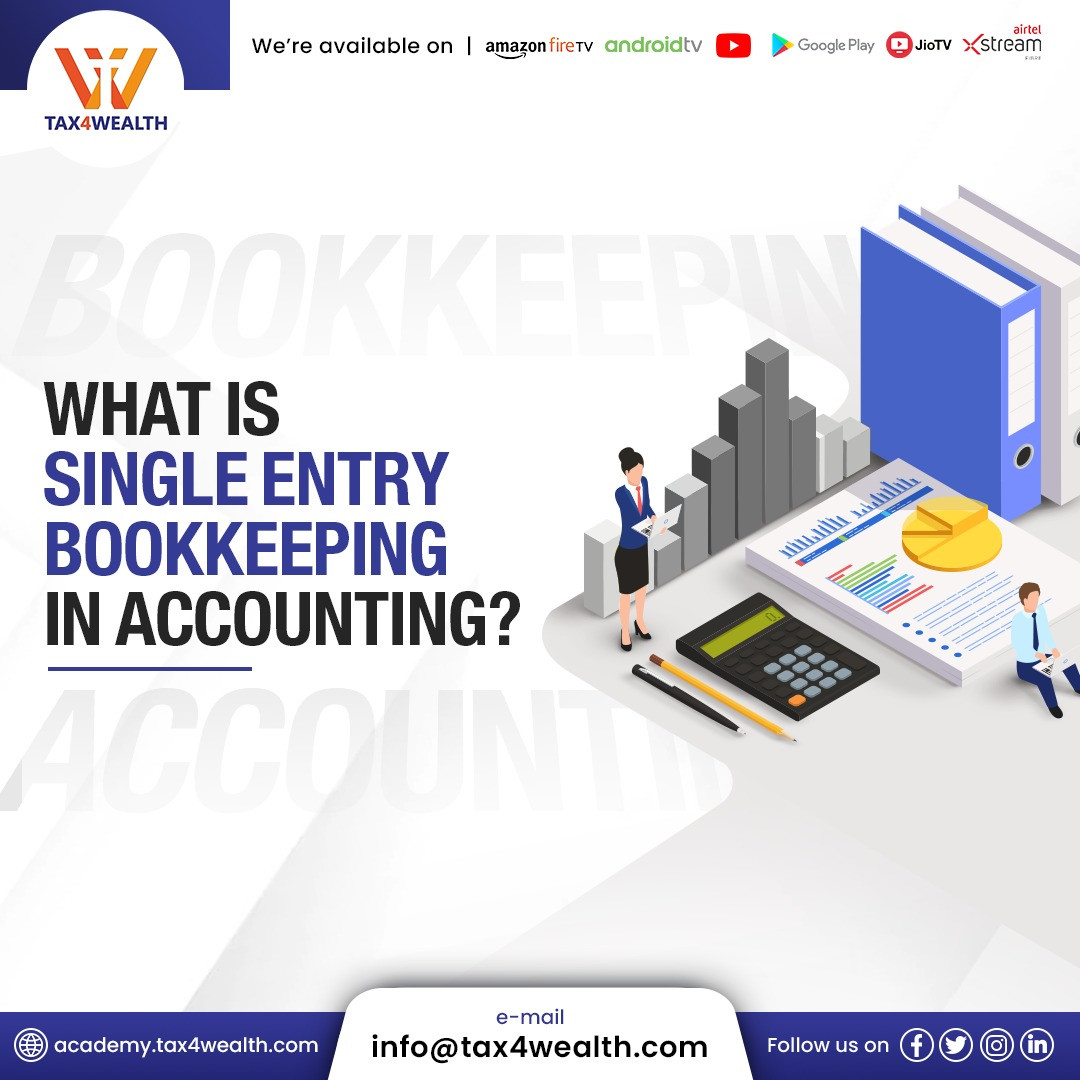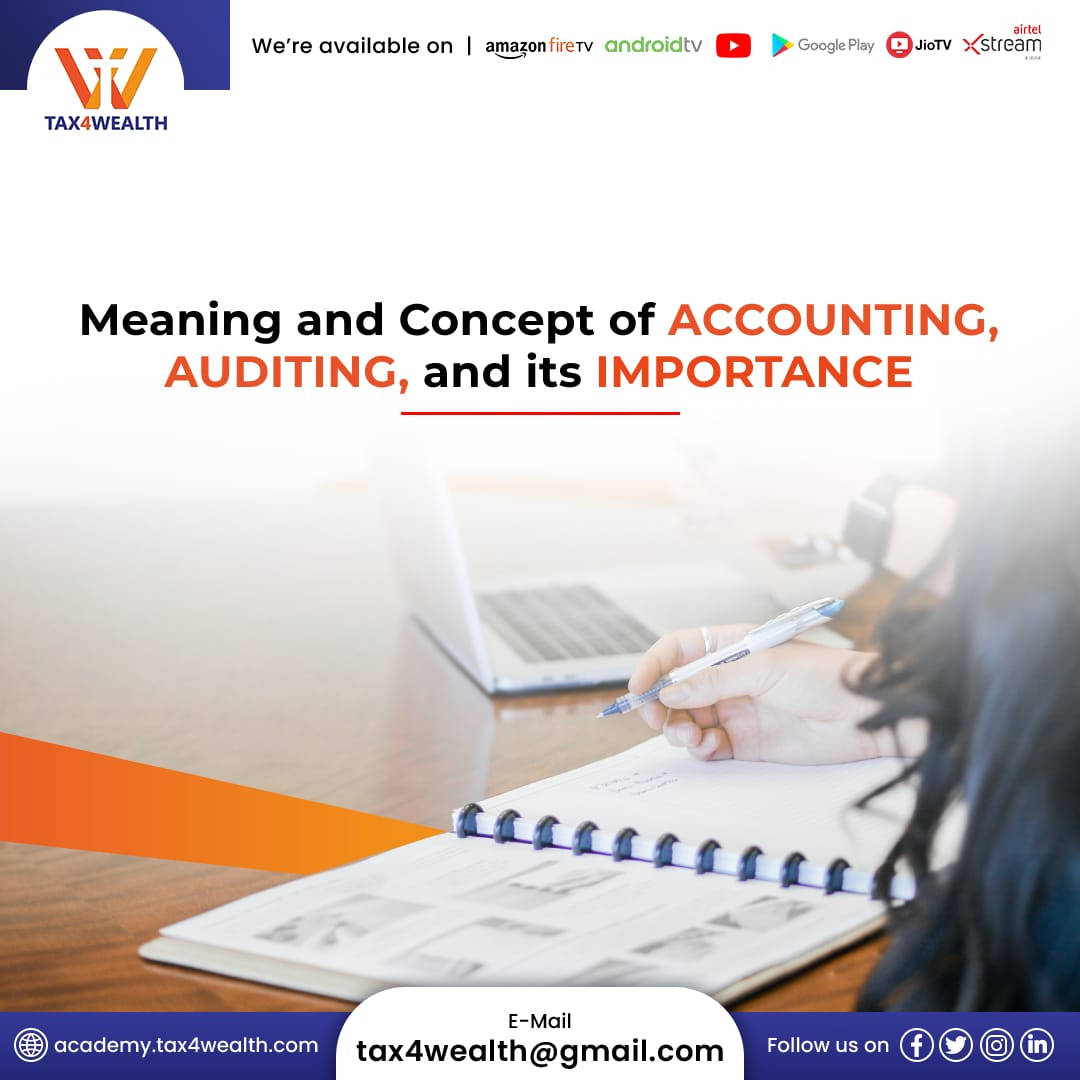
What is Single Entry Bookkeeping in Accounting?
Introduction:
Accounting is a fundamental aspect of managing finances for individuals and businesses alike. To keep track of financial transactions, two primary methods of bookkeeping are employed: single-entry and double-entry bookkeeping. In this blog, we'll delve into the world of single-entry bookkeeping, exploring what it is, its advantages, and disadvantages, and when it might be suitable for your financial needs.
What is Single Entry Bookkeeping in Accounting?
Single-entry bookkeeping is a simplified method of financial record-keeping that tracks transactions with a single entry for each financial event. In this system, financial transactions are recorded in a single ledger, typically organized chronologically.
This method is often used by small businesses and freelancers because it is easy to learn and maintain. It can also be used by individuals to track their personal finances.
The single entry bookkeeping system simplifies financial record-keeping by focusing on the cash book and personal accounts of creditors and debtors, without the need for additional ledgers. In this method, transactions are solely recorded in the cash book, without adhering to the double-entry principles. Notably, nominal and real accounts aren't part of this system.
Single entry bookkeeping primarily maintains records related to taxes paid, accounts payable, cash, receivables, and a select few other accounts. This system is often favoured by small businesses due to its user-friendly nature and minimal demands on resources.
Characteristics of Single Entry Bookkeeping System :
The single entry system of bookkeeping is distinguished by several key characteristics:
1. Utilization of Original Vouchers :
In this system, original vouchers hold paramount importance. They serve as the primary source of information, capturing crucial details such as transaction amounts, dates, any applicable discounts, involved parties, and more.
2. Cash Book Maintenance :
Under single entry bookkeeping, a single cash book is maintained to record all cash receipts and payments occurring within a specified period. This includes both personal and business transactions, consolidating them into a single ledger.
3. Management of Personal Accounts :
Personal accounts of creditors and debtors are diligently managed in the single entry system. This is done to ascertain the total credit purchases and sales over a specific period. However, real and nominal accounts are omitted from consideration.
4. Absence of Prescribed Rules :
The single entry bookkeeping method lacks a rigid set of established rules or principles for profit determination and the creation of financial statements. As a result, it is relatively flexible in its application, which can vary from one business to another.
5. Profit or Loss Estimation :
In this system, the business's profit or loss is approximated based on the available information. Consequently, exact figures for profits or losses are not determined. These calculations are estimations, preventing the comprehensive assessment of the overall financial position of the business.
6. The challenge in Preparing Final Accounts :
Creating final accounts can be challenging within the single-entry bookkeeping framework due to the absence of data from real and nominal accounts. Information about liabilities and assets is derived from available data, but these figures remain approximate. Therefore, instead of a traditional Balance Sheet, a Statement of Affairs is often prepared.
Advantages of Single Entry Bookkeeping :
Single entry bookkeeping is straightforward and requires minimal accounting knowledge. It's an ideal choice for individuals or small businesses with uncomplicated financial transactions.
1. With only one entry per transaction, this method saves time compared to double entry bookkeeping, where every transaction involves two entries - a debit and a credit.
2. Since it doesn't require the use of specialized accounting software or hiring a professional accountant, single entry bookkeeping can be cost-effective for small businesses with limited resources.
3. If your business operates on a cash basis, where you record income and expenses when money physically changes hands, single entry bookkeeping can work well.
4. Single entry bookkeeping doesn't involve complex accounting principles or the need to create balanced financial statements, making it accessible to individuals with limited accounting knowledge.
Disadvantages of Single Entry Bookkeeping :
1. Single entry bookkeeping does not provide the same level of accuracy as double entry bookkeeping. It may lead to errors or omissions, which can impact financial reporting and decision-making.
2. This method does not provide detailed financial statements like balance sheets or income statements, making it challenging to assess the overall financial health of a business.
3. Businesses with complex financial transactions or multiple revenue streams may find single entry bookkeeping insufficient to capture all relevant financial data.
4. Single-entry bookkeeping may not meet the requirements of regulatory bodies or auditors, potentially leading to compliance issues.
When to Use Single Entry Bookkeeping?
Single entry bookkeeping is best suited for:
1. Small Businesses :
Sole proprietorships, freelancers, and very small businesses with straightforward finances can benefit from this method.
2. Simple Transactions :
If your business primarily deals with cash transactions or only a few transactions per day, single entry bookkeeping may suffice.
3. Limited Resources :
When hiring a professional accountant or investing in complex accounting software is not feasible, single entry bookkeeping can provide a basic record-keeping solution.
Related News
No comments yet, Be the first to comment.













